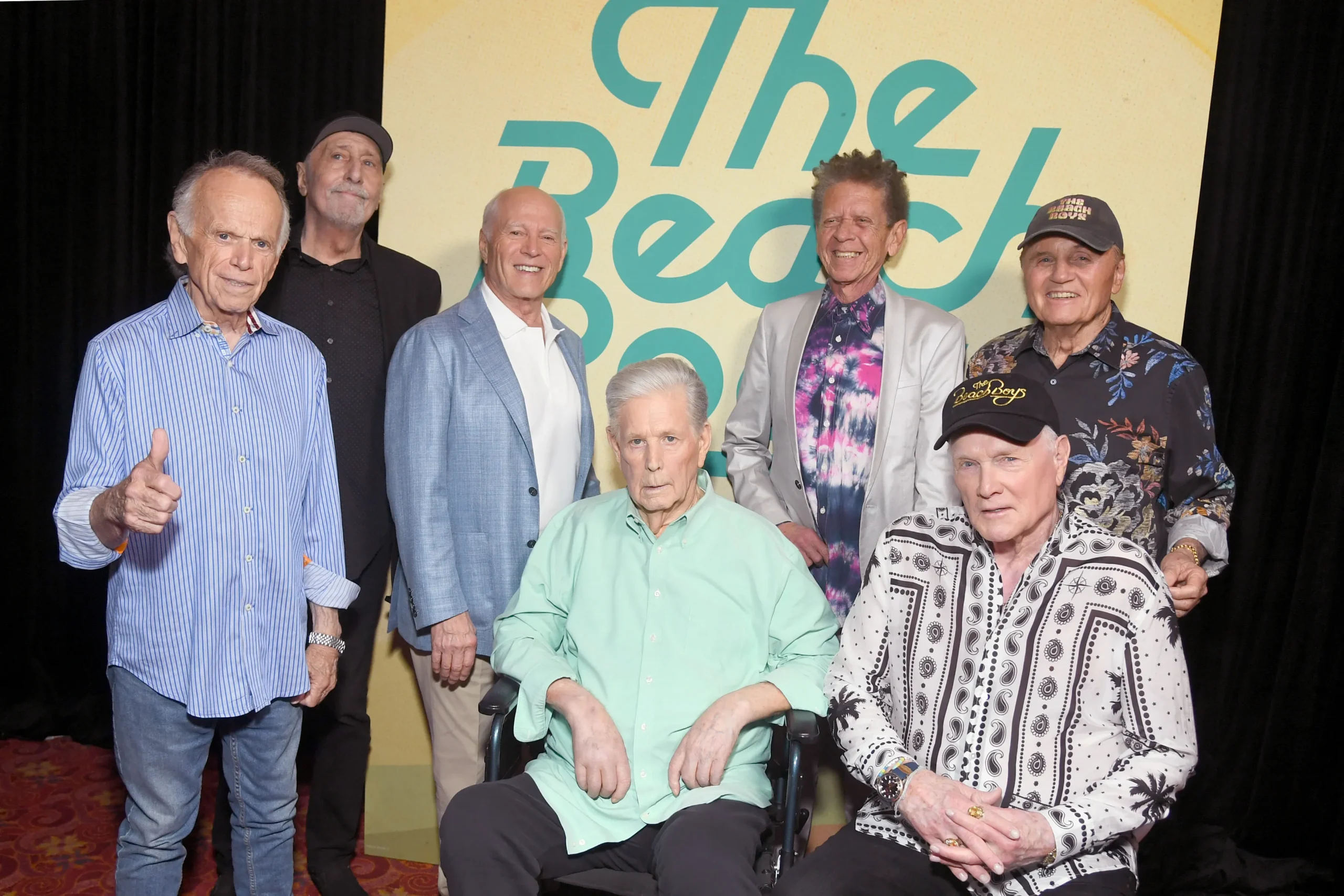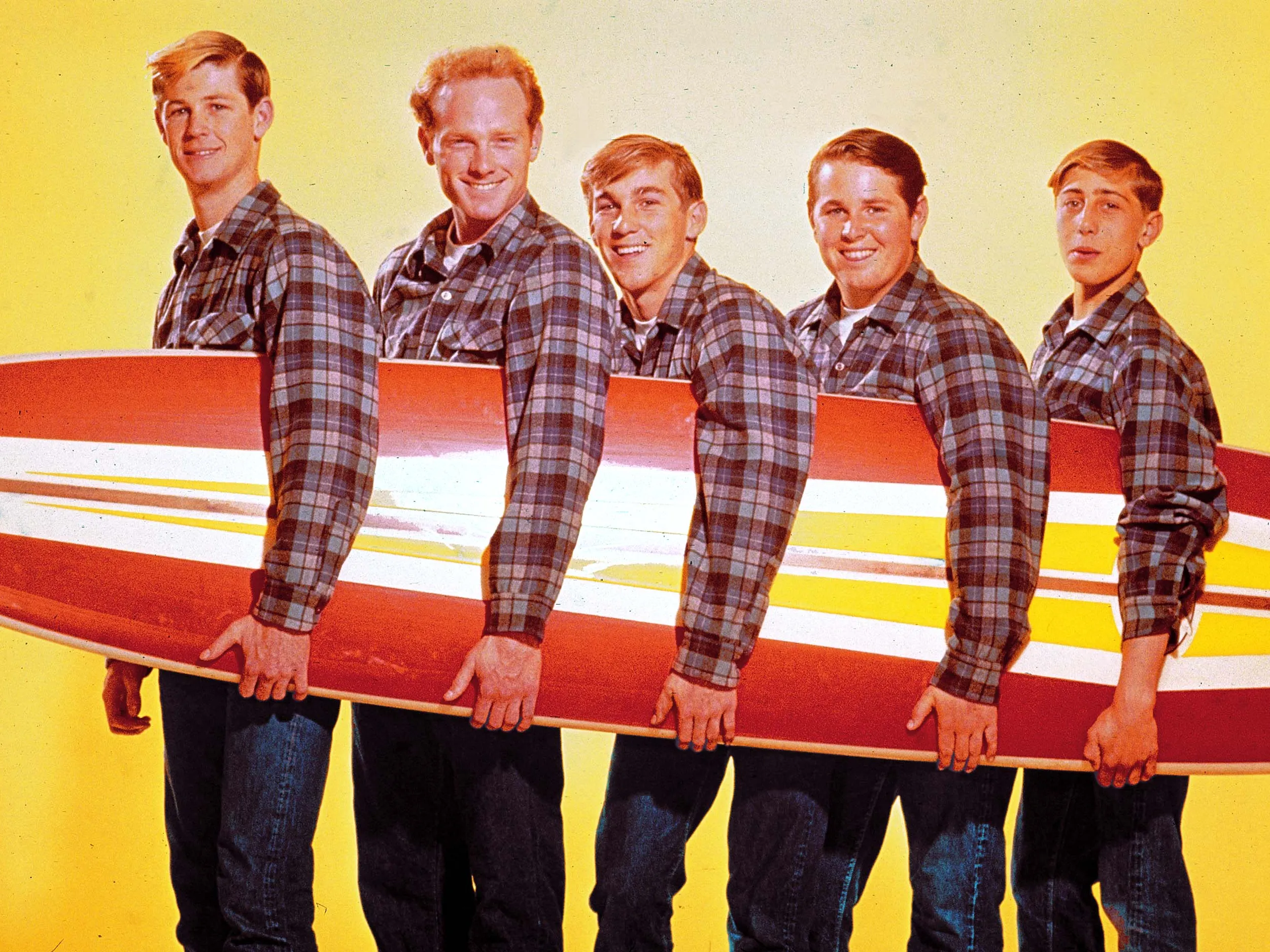CALIFORNIA – On Wednesday, the family of Brian Wilson, the Beach Boys co-founder, announced his passing at the age of 86. The statement on Instagram touched fans, musicians, and music lovers everywhere. It did not give a cause.
Brian Wilson didn’t just write hits; he changed what pop music could be, showing how honesty and creativity can shift an entire genre. His songs shaped musicians from The Beatles to indie acts like Yo La Tengo and Belle and Sebastian, earning him a place among the greatest songwriters of the 20th century.
Born in Inglewood, California, in 1942, Wilson started The Beach Boys in 1961 with his brothers Carl and Dennis, cousin Mike Love, and friend Al Jardine. They first performed as the Pendletones, but changed their name after signing with Candix Records and releasing “Surfin’.”
That first single kicked off the surf rock movement. Soon, the group was known for classics like “Surfer Girl,” “I Get Around,” “California Girls,” and “Help Me, Rhonda.” Their songs, packed with lush harmonies and Brian Wilson’s careful arrangements, captured the spirit of California summers and made them America’s top rock band during the 1960s, even competing with The Beatles in global popularity.

Brian Wilson’s Talent
Wilson’s talent went far beyond creating catchy songs. In 1966, he released Pet Sounds, an album that broke away from music trends of the time. Inspired by The Beatles’ Rubber Soul and his experiments, Brian Wilson combined jazz, classical, and even everyday sounds like bicycle bells and barking dogs to create a deeply emotional and layered album.
Though Pet Sounds sold modestly at first, critics and musicians soon recognized its genius. Paul McCartney called it a direct influence on Sgt. Pepper’s Lonely Hearts Club Band, and Rolling Stone ranked it second on its list of the 500 greatest albums, a sign of its lasting influence.
Wilson kept pushing the limits of music with Smile, which he started with lyricist Van Dyke Parks in 1966. The project aimed to blend rock, jazz, and elements of American stories and myths. Problems with his health and issues within the band led to Smile being shelved in 1967, but its reputation grew over the years.
Wilson finally finished and performed Smile in 2004, releasing it as a solo album that climbed to No. 13 on the charts, his highest solo ranking. Completing Smile showed Wilson’s enduring strength and determination in the face of many setbacks.
 Brian Wilson Made Pop Music into Art
Brian Wilson Made Pop Music into Art
His influence didn’t stop at songwriting. Brian Wilson used the recording studio in ways few others had. He layered harmonies and instruments with care, setting new standards for music production. His use of multi-tracking and unique sounds inspired everyone from Phil Spector to today’s indie musicians.
“Good Vibrations,” a single released in 1966, cost an unheard-of $75,000 to make and featured instruments like the theremin, cello, and harmonica. It reached No. 1 and remains recognized as one of rock’s most intricate and well-known songs.
Rolling Stone called it one of the most iconic tracks in the genre’s history, underscoring Wilson’s skill in making pop music into art.
Recognition for Wilson’s work came in many forms. He and The Beach Boys entered the Rock and Roll Hall of Fame in 1988, an event remembered for Mike Love’s controversial speech.
Brian Wilson was added to the Songwriters Hall of Fame in 2000 and honoured by the Kennedy Center in 2007 for his cultural contributions. He earned two Grammy Awards, including a Lifetime Achievement Award in 2001, and was named one of Rolling Stone’s 200 greatest singers in 2023. A touching moment came in 2018, when his high school principal changed a failing grade Wilson once received in music to an “A.”
Brian Wilson’s brilliance came with personal struggles. He dealt with mental health conditions, including schizoaffective disorder with auditory hallucinations, and battled addiction, worsened by drug use in the 1960s.

Conservatorship Due to Dementia
After a panic attack on a flight in 1964, he stopped touring with The Beach Boys and focused on writing and studio work. His time with therapist Eugene Landy in the 1980s attracted controversy until Wilson’s second wife, Melinda Ledbetter, helped him break free.
After Melinda died in early 2024, Wilson was placed under conservatorship due to dementia, highlighting his vulnerability in his later years.
Even with these hardships, Wilson’s music offered hope and honesty. In a 2000 interview with Salon, he described himself as a “crusader of love,” saying he wanted to share love through his songs.
Whether it was the upbeat “Surfin’ USA” or the touching “God Only Knows,” Brian Wilson captured both simple feelings and deep artistic vision. Don Was, a fellow musician, once said Wilson’s gift was turning basic emotions into something beautiful and complex.
The reaction to Brian Wilson’s passing showed how much he meant to others. Al Jardine, his longtime bandmate, called him a “humble giant” and promised to honour his songs forever. Ronnie Wood from the Rolling Stones shared his sorrow at losing Wilson and Sly Stone in the same week. John Cale praised Wilson’s ability to bring new depth to pop music.
Elton John called him a “true giant,” and Questlove wrote a moving tribute about how Wilson made it safe for musicians to be open about their struggles. Industry leaders like Sir Lucian Grainge called Wilson one of the most talented songwriters ever, while Jalen Ngonda and Stephen Street agreed that Wilson’s talent was unmatched in American music.

Over 100 million records and 36 Top 40 hits
Those closest to Wilson in The Beach Boys felt his absence deeply. Fred Vail, a former manager, told Rolling Stone, “The three Wilsons are finally back together,” remembering Brian’s reunion with his late brothers, Carl and Dennis.
The Beach Boys, who sold over 100 million records and scored 36 Top 40 hits, overcame family issues and drama, from Dennis’s connection to Charles Manson to fights over creative direction. Through it all, Wilson’s artistic vision guided the band, especially as he stepped back from performing to work in the studio.
Brian Wilson enjoyed a major comeback later in life. Starting in the late 1990s, he toured the world as a solo artist, performing Pet Sounds and Smile for grateful audiences. In 2012, he reunited with The Beach Boys for a Grammy show and released That’s Why God Made the Radio, proving his talent remained strong. Fans in Milwaukee and elsewhere remembered his sometimes awkward but always heartfelt presence on stage, a reminder of his genuine nature.
Brian Wilson’s passing marks the end of an era, but his music, with its clear harmonies and longing, continues to inspire. He once said he blocked out the world to hear a special kind of music that let him share feelings he couldn’t speak about.
That ability, given freely to listeners, keeps his place secure not just in the Rock and Roll Hall of Fame, but in the hearts of anyone moved by a perfect pop melody. As people visit his childhood home in Southern California, Wilson’s influence remains strong, as constant as the ocean waves he celebrated in song.














